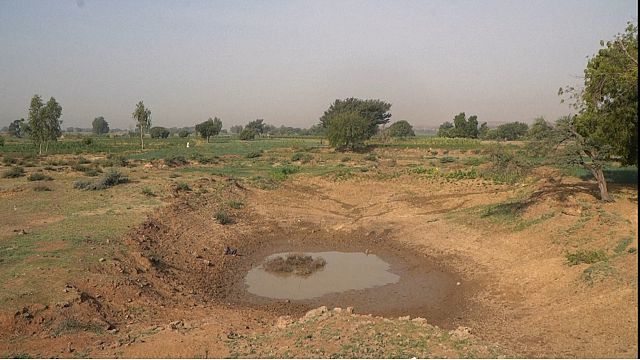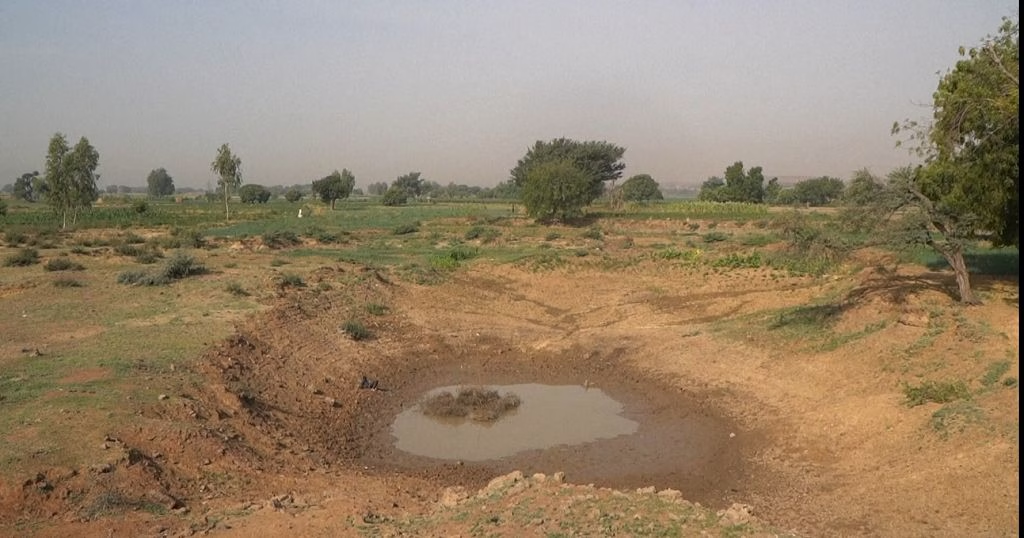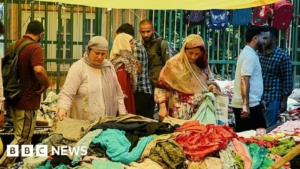
After working his farm for two decades in northwestern Nigeria, Nasiru Bello, like many others, has been forced to pump underground water. The remnants of a river once providing water for his over five-hectare farm and others in the Kwalkwalawa community in Sokoto state are now nothing more than a muddy puddle. “All these things are a result of climate change, because in the previous years we didn’t know the drying up of rivers like this, but now because of climate change, they are dry,” says Bello. He continues to plant his leeks in the dry soil, facing significant difficulties without the river. The constant need to dig new wells due to the drying up of the current one and the lack of funds for generators to access the water puts him in a challenging financial position.
Climate change is casting a shadow over agriculture in Nigeria, the most populous country in Africa. Farmers in the north, which accounts for about 70% of Nigeria’s agriculture, directly impact food prices and availability in the densely populated south. With over 80% of Nigeria’s farmers working on a small scale, the challenges are magnified. For example, the cultivated land for maize, Nigeria’s major cereal crop, declined from 6.2 million hectares in 2021 to 5.8 million hectares in 2022. These farmers often rely on minimal tools, and the drying up of reliable water sources only exacerbates their struggles.
Elsewhere in Sokoto state, farmers like Umoru Muazu find themselves in a similar predicament. He explains how their farm, which initially had plenty of water, now requires wells to be dug for irrigation. The changing climate has made water availability unpredictable, creating a necessity for additional wells. The socio-economic implications of this are profound, with Nigeria expected to become the world’s third most populous country by 2050. The effects of decreasing crop yields are already being felt, leading to health and water crises. Dr. Isa Yusuf-Sokoto, an environmentalist, highlights how the loss of two-thirds of Sokoto’s trees contributes to rising temperatures, further stressing the situation.
The impact is not confined to the north; Nigeria’s agriculture contributed 22% to the GDP in the second quarter of 2024, down from 25% in the previous quarter, with food imports reaching a five-year high. In response, the UN Food and Agriculture Organization is promoting climate-smart agriculture to ensure food security, and Nigeria’s government is directing research institutes to find solutions. However, for now, farmers like Bello and Muazu continue to work the land under the shadow of uncertainty.
Source: http://www.africanews.com/2025/05/12/climate-change-threatens-agriculture-in-nigeria/







